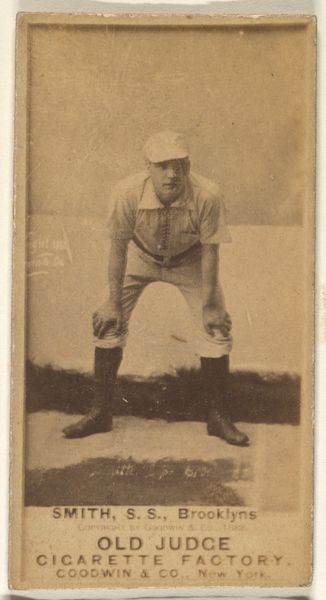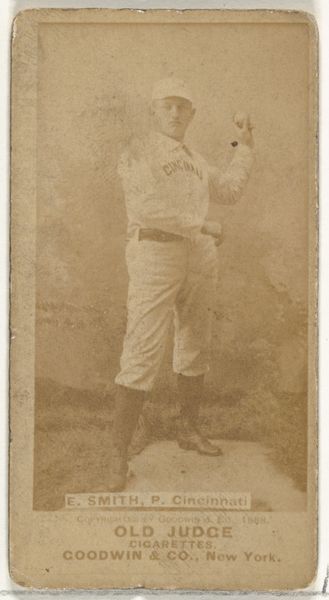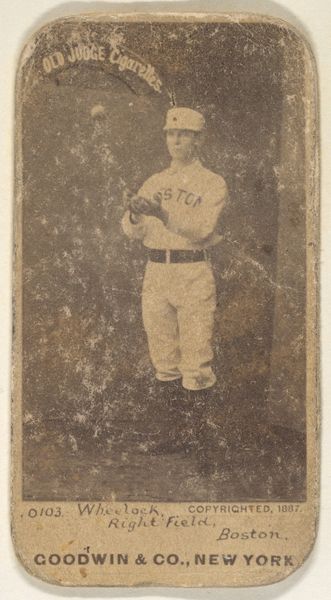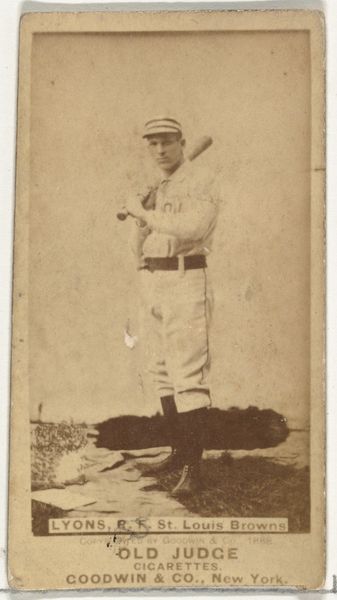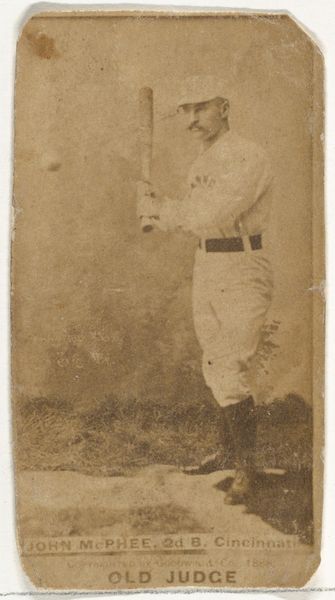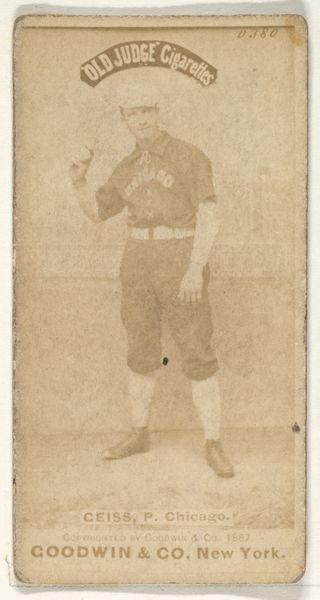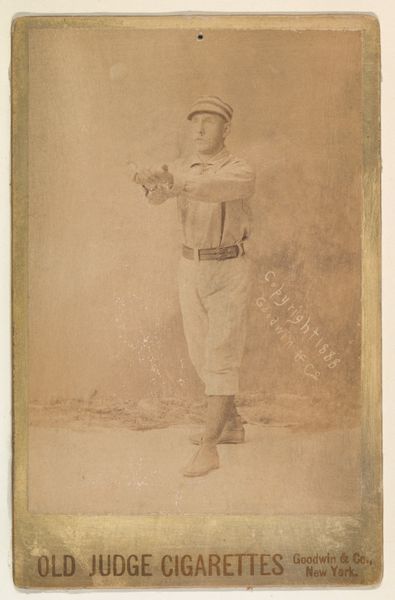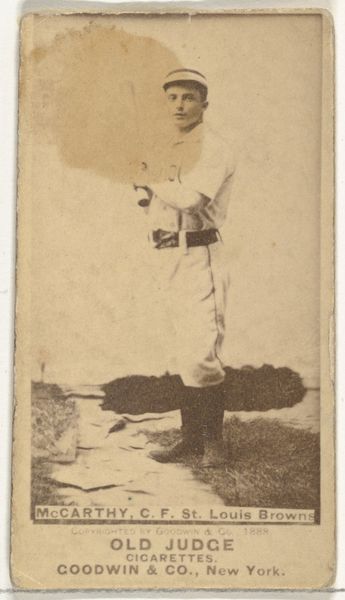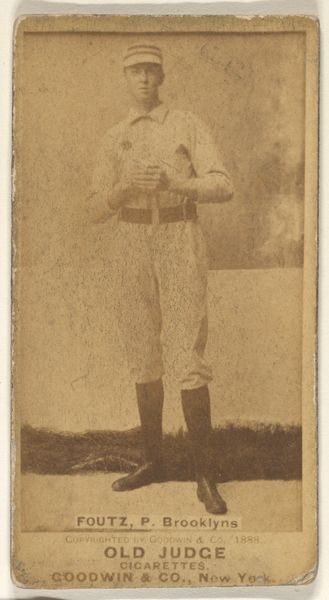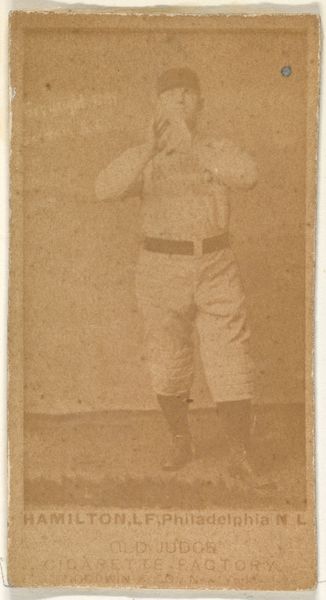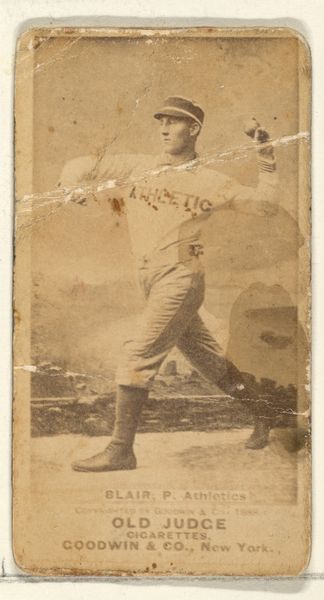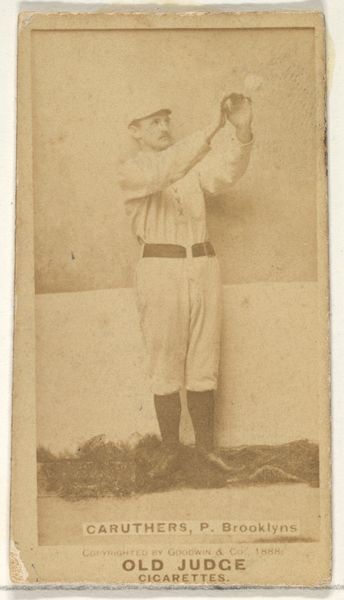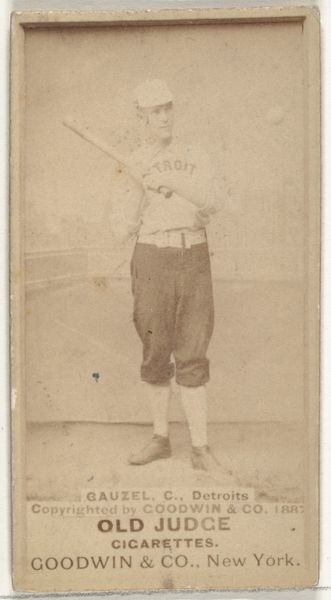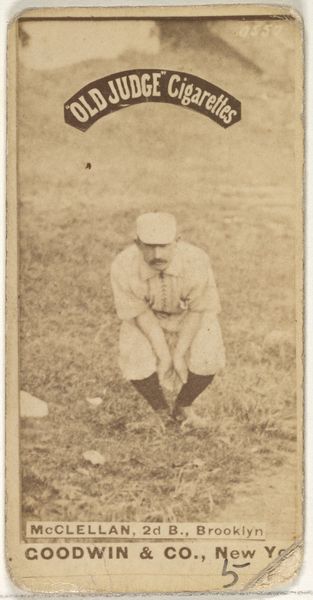
Daily, Catcher, Boston, from the Old Judge series (N172) for Old Judge Cigarettes 1887
0:00
0:00
drawing, print, photography
#
portrait
#
drawing
# print
#
baseball
#
photography
#
coloured pencil
#
men
Dimensions: sheet: 2 11/16 x 1 3/8 in. (6.9 x 3.5 cm)
Copyright: Public Domain
Curator: Here we have “Daily, Catcher, Boston” from the Old Judge series, a baseball card produced around 1887 by Goodwin & Company for Old Judge Cigarettes. Editor: There's something immediately poignant about this small, faded photograph. It has the feel of a daguerreotype; intimate, fleeting, and maybe even a bit melancholic. Curator: That’s interesting. It's presented in a sepia tone and the subject's stance might signal this effect, though I'm curious what draws you to those qualities. Editor: He's crouched, waiting, intensely focused, like a coiled spring. You know, thinking about the social context, these early baseball cards really were pivotal in marketing the sport to a wider audience, normalizing ideas about masculinity and labor. What about the name "Old Judge"? Curator: "Old Judge" speaks to trustworthiness and authority, doesn't it? Goodwin cleverly tapped into those deeply-rooted associations, imbuing this modern pursuit with tradition and respectability. Note the formal studio setting too. He’s posed as a symbol more than a portrait. Editor: Precisely! Consider the implicit promise of citizenship and virtue embedded within that image – sport as a meritocracy! Even today, it's a coded language; so it brings up so many questions. Like who was Daily and where is he now? Who exactly had access to this virtue and labor? Curator: True, we're only glimpsing a carefully curated fraction of reality. Look at how this format also echoed established portrait traditions of its day. To own and collect his likeness on cardstock gave working-class folk an entirely new mode of engaging. Editor: It’s a stark reminder that popular culture in any form is a carefully constructed narrative, and visual representation is never neutral. Even in something as seemingly straightforward as a baseball card. It really provokes ideas of exclusion. Curator: Absolutely. Though through careful looking, perhaps it allows a closer proximity with that world that shaped these figures. What endures even now from their lives. Editor: That's beautifully said. It highlights how objects can speak to complex societal structures; offering an archive that holds not only facts but a memory that can spark a deeper and even collective contemplation about access.
Comments
No comments
Be the first to comment and join the conversation on the ultimate creative platform.
